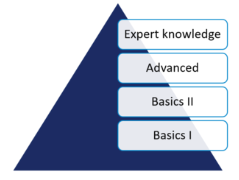QF-Test maintenance release 7.0.6 & 7.0.7 | NEW: Expert Day via Webinar in November
Hello dear QF-Test users!
The critical vulnerability in the WebP graphics library, which affects many kinds of software products, including all browsers, has made high waves in the IT world over the last two weeks. Since QF-Test also uses this library, we first replaced it in version 7.0.6 and updated the embedded Chrome browser for QF-Driver on Windows in today`s release QF-Test 7.0.7.
In addition, we have a new training format for you: On November 20, 2023, we offer an expert day on the topic "Toolbox for stable component detection of web applications". In this online training, we will dive deeply into QF-Test and show you how to optimize the interaction with your web application. There will be time for exercises on special topics and your personal questions.
Best regards,
your QFS team
QF-Test Wartungsversionen 7.0.6 & 7.0.7
Mit den QF-Test Versionen 7.0.6 und 7.0.7 reagieren wir zeitnah auf die schwerwiegende Sicherheitslücke in der weit verbreiteten Grafikbibliothek WebP. Dafür aktualisieren diese Versionen die Bibliothek selbst (7.0.6) und heben den eingebetteten Chrome Browser für QF-Driver unter Windows auf CEF Version 117 (7.0.7).
Mehr Infos zur WebP-Sicherheitslücke, sowie Maßnahmen für die Absicherung älterer QF-Test Versionen finden Sie im Blogbeitrag |
Save-the date: Events in 2023
 | For beginners and experts: Join our QF-Test compact courses from June 12 to 15, 2023. Small groups, via webinar. |
Would you like a training course that is individually tailored to your company? Just send us an email to service@qfs.de.
News
- New blog about SmartID – The next generation of component recognition: component tree maintenance is eliminated, and yet key recognition features can be targeted.
➜ Continue reading - Wanted: Software Developer with Java experience in Leipzig or Geretsried – We are continuously developing QF-Test and are looking for a Java specialist. Apply now!
➜ Job advertisement
From Our YouTube Channel
In this video we give a short introduction to web testing with QF-Test for beginners.
➜ Watch the video now
Visit our YouTube channel to subscribe and take a look at our blog.